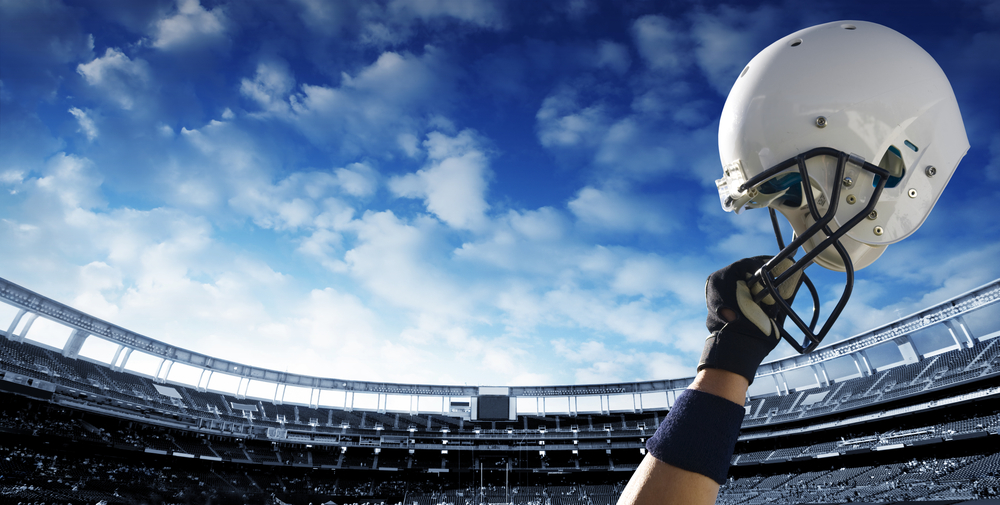At this time of year, many of us are full of good intentions related to everything from exercise and nutrition to what it takes to lead a good, productive life. Along those lines, in my view, there is no better time than the start of a new year for a conversation about one of my favorite subjects: the value of recharging and recovering.
This month, millions of people around America and across the globe — myself included — are intently focused on football, with the NFL Super Bowl in full swing. I believe everyone can learn about the value of consistent, quality sleep from the way athletes are now paying attention to it. At Sleep Number, we are proud partners of the NFL, and it’s no secret that on the road to the Super Bowl, harnessing the benefits of quality shut-eye ensures that players are performing at their peak.
For one thing, sacrificing sleep leads to loss of aerobic endurance, according to recent science. And that, in turn, can result in higher levels of cortisol,(a stress hormone), which can lead to worry and anxiety, affecting mood and, subsequently, performance. Sleep deprivation also results in a decrease of human growth hormone, which is important for tissue repair and crucial for muscles to recover after physical activity. In addition, you need good sleep to stimulate your immune system and reduce inflammation.
The importance of quality sleep for professional athletes is compounded by the specific challenges they face, for example jet lag-induced fatigue, as teams fly across the country for games. Caused by the disruption of our circadian system, otherwise known as our internal body clock, jet lag can lead to grogginess and a loss of productivity. All in all, it’s easy to understand why resting and recharging is vital for athletes who need stamina and often sustain injuries — and that it’s equally important for the rest of us.
For more on the science, I spoke to Dr. Chris Winter, M.D., director of the Charlottesville Neurology and Sleep Medicine Center and author of The Sleep Solution. “Athletic recovery depends upon getting consistent, quality sleep, (eight to 10 hours of shut-eye is recommended for football players). “Particularly critical is deep sleep, which generally happens in the first two to three hours of your night, because for adults, it’s about the only time we make growth hormone,” says Dr. Winter. He explains that to get deep sleep, it is important to go to bed around the same time each night. “If you typically fall asleep around 11p.m. and get up around 6 a.m., that deep sleep’s going to happen from about 11 p.m. to 1 a.m. Therefore, if you suddenly go to bed at 4 o’clock in the morning, you don’t get your deep sleep that night.” After just one night of poor sleep or no sleep, your body feels different and your motivation wanes.
Dr. Winter has often given this sage advice to professional athletes who insist that they can get away with a few hours a night, without any adverse impact on their game or their health. He says: “I’ve told football players I work with, ‘You’ve got to make some better choices, because that kind of lifestyle is not conducive to being a pro athlete for a long period of time.’” Dr Winter adds that getting restricted sleep for just three to five nights will have a serious negative impact on performance — whether that’s in the office or on the field. “Athletes and investment bankers come to see me and say: ‘Hey, Doc, as long as I get my four hours I’m fine,’” says Dr. Winter. “I tell them: ‘No, you’re not. Your ability to perform is completely impaired, even if you don’t feel it. You may be doing triathlons, but make no mistake, if you are only getting four hours of sleep, your health will suffer seriously as you get older. Just be aware of that.’”
I asked Dr. Nathaniel F. Watson, M.D. M.Sc., professor of neurology at the University of Washington and director of the Harborview Medical Center Sleep Clinic, to add his expertise. He pointed out that “sleep is the time when what’s called the lymphatic system in the brain takes out the trash, so to speak. When you go to sleep,” he says, “the brain contracts a little and opens up channels for cerebrospinal fluid to flow around, collecting and taking out all the byproducts of a day’s worth of cognitive use.” In other words, the brain is completing and clearing the cellular “gunk” that accumulates during wakefulness, so we can be refreshed and revitalized when we wake up.
When we get a good night’s sleep, we wake up mentally alert, prepared to perform at our best. Our cognitive performance will improve, and we can think more quickly and make the correct decisions at a faster rate, says Dr. Watson, who treats college athletes and professional teams for sleep issues and disorders. Sleep is absolutely crucial to both the mind and the body. “There’s no substitute for sleep, so don’t fight it,” says Dr. Watson, who recommends listening to and respecting your body’s natural signs and signals. “When it’s dark out in the evening and you are ready for bed, go to sleep as soon as you feel drowsy, if possible,” he says, “and wake up spontaneously without setting an alarm clock.”
Quality shut-eye is a key to high performance and longevity. Basketball players shoot better free throws. Swimmers swim faster. Tennis players hit their balls 50% more accurately and have fewer mental lapses. As a general rule, you’ll find that athletes who have had long careers take sleeping and recharging seriously, because they’ve discovered the value for themselves. I encourage everyone to take the same approach. And on that note, with 20/20 vision, I intuitively feel it’s going to be a great year.
Sleep well, Dream Big, Shelly


